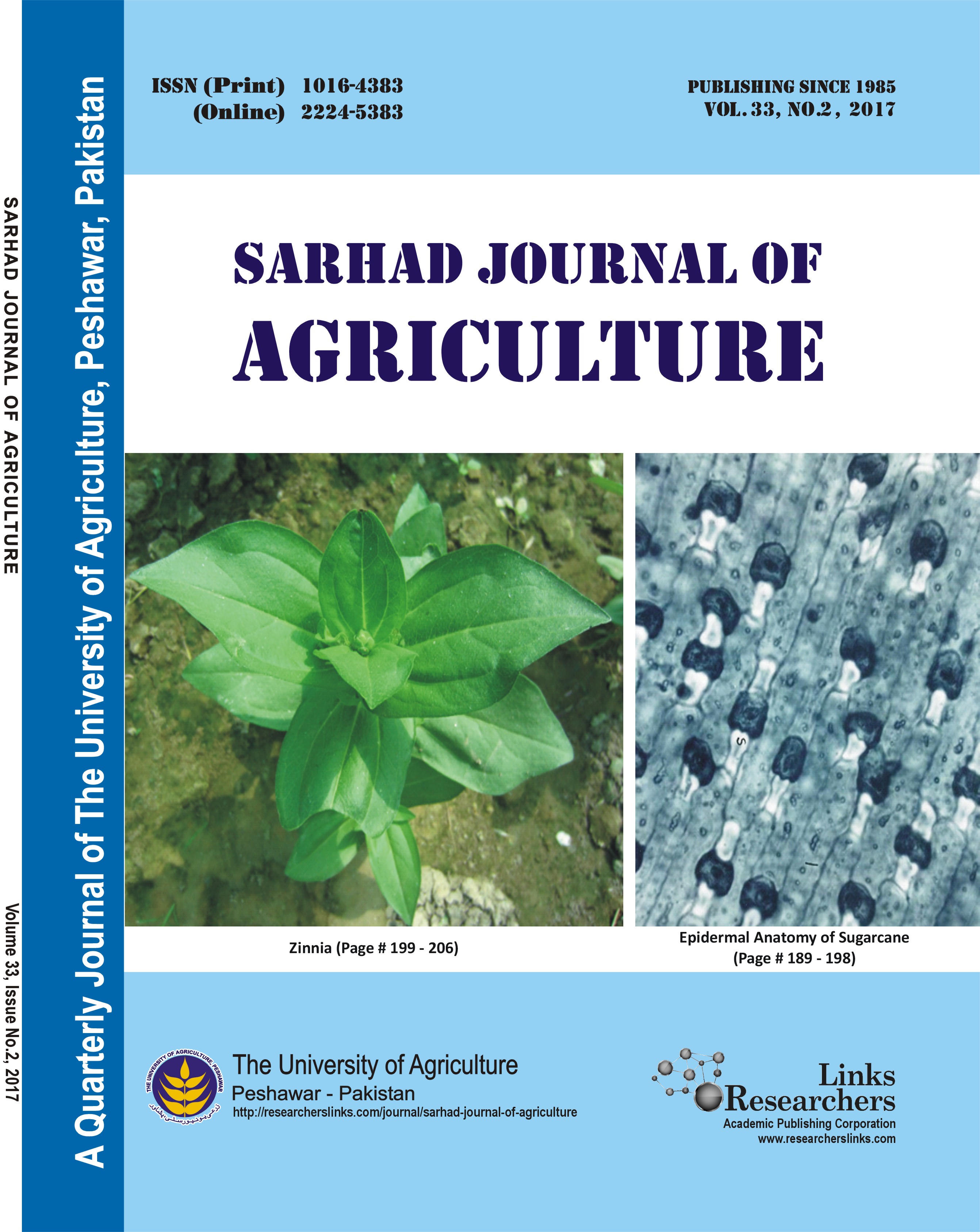Impact of Biochar and Nitrogen Application on Soil Physicochemical Attributes at Various Growth Stages of Maize and Subsequent Wheat Crop
Impact of Biochar and Nitrogen Application on Soil Physicochemical Attributes at Various Growth Stages of Maize and Subsequent Wheat Crop
Habibullah* and Sahib Alam
ABSTRACT
This study aimed to investigate the impact of integrated use of biochar and nitrogen (N) fertilizer on soil physicochemical properties at various growth stages of maize and subsequent wheat crop. Biochar was applied before sowing, while N application was carried out in splits to the crops. The study was conducted in district Buner, Pakistan using randomized complete block design with split-plot arrangement. Biochar was applied at the rates of 0, 5, 10, 15 and 20 ton/ha as the main plot factor. The immediate effect of biochar was assessed on maize crop integrated with four levels of N viz. 0, 100,150 and 200 kg/ha applied as sub-plot factor. The residual impact of the previously applied biochar levels coupled with fresh applications of N at the rate of 0, 80, 120 and 200 kg/ha was assessed on subsequent wheat crop grown on the same plots. The soil physicochemical properties were evaluated in the beginning, reproductive stage and at maturity of each crop. The average values of soil pH, electrical conductivity (EC), organic matter (OM), N, P and K of the soil before sowing of maize crop were found to be 8.2, 0.37 dS/m, 0.95%, 1.74 mg/kg, 3.45 mg/kg, 61.5 mg/kg, respectively. Biochar and N application significantly (p≤0.05) increased soil pH whereas soil OM was substantially enhanced only with biochar at the reproductive stage of maize. However, at this stage, the effect of biochar and N application was not significant (p≥0.05) on soil EC. At maturity stage of maize crop, soil pH, OM and EC were not significantly (p≥0.05) varied from that at reproductive stage. Residual biochar significantly (p≤0.05) increased soil pH and OM at reproductive stage of wheat. Similarly, the effect of both residual biochar and different N levels was not significant (p≥0.05) on soil EC. However, at maturity stage of wheat crop soil OM, was significantly (p≤0.05) increased with biochar residues and N applications, whereas soil pH was only influenced by residual biochar. The effect of N was not significant (p≥0.05) on soil pH and EC at maturity stage of wheat crop. As biochar improve the soil physicochemical properties therefore biochar application along with N fertilizer might be helpful in maintaining healthy soil for better crop productivity.
To share on other social networks, click on any share button. What are these?







